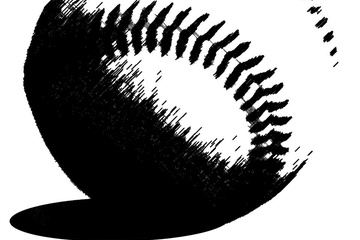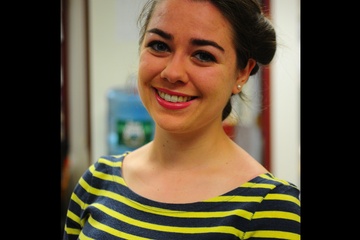When I was 10 years old, my parents gently suggested that I pick up accordion as a hobby. It was an unusual request, maybe, but not wholly random: they had listened to accordion music growing up in China, where it’s still a commonly studied musical instrument, and they thought I’d enjoy a hobby that few others my age did as well. To that end, my dad found an old, German accordion on eBay and proudly acquired it for $60. That was how much it was worth, really, and the instrument itself was clearly on its last legs—the right-hand piano keys were yellowed and stiff, and the bellows huffed and wheezed as I practiced and played. I felt old just playing it, but for whatever reason, I liked the feel. It was different.
At first, I tried to learn to play by watching instructional videotapes my parents bought through the mail. This wasn’t very productive; most of the videos featured the same guy, looking middle-aged and lame, who played cheesy songs and asked me to repeat after him. I ditched this guy pretty quickly and my mom, resourceful as ever, placed an ad in the local Chinese newspaper to seek out somebody willing to teach a novice accordion student. We got a reply soon after from a lady named Mrs. Dai, teaching out of her home in Westfield an hour away.
We settled on a regular lesson time—Saturdays, from 5 to 6 p.m.—and I began to learn the repertoire of the classical accordion. I learned to play Polish polkas, Spanish tangos, and Hungarian folk melodies, and I learned to look like I knew what I was doing. I was Mrs. Dai’s only student, actually, and she took personal pride in teaching me to become a concert accordionist. My very first lesson with Mrs. Dai began with learning how to properly “wear” my accordion—how to take it out of the case, adjust the straps—which is more important than it sounds. As she told me, “It’s easy for people not to take you seriously when you play accordion. This is unfortunate, but you can earn their respect by approaching the instrument seriously.”
I studied accordion all through middle school, and the drive to my lesson each Saturday afternoon became a regular part of my life. Between the sixth and the ninth grades, Saturdays were never mine to have: some mornings I’d have swim meets, and most afternoons would be swallowed by Chinese school, followed by the hour-long commute up Route 22 to Mrs. Dai’s. For people who make fun of New Jersey, the view along Route 22 doesn’t dispel any prejudices about the apparently misnamed Garden State. Driving up the highway with my dad each week was like watching a documentary on strip malls—a muted tour through the kind of commuter malaise that lives a daily existence on endless asphalt trails.
It wasn’t altogether tiresome or boring, though. Every week, my dad and I would listen to the same National Public Radio programs: “Wait Wait...Don’t Tell Me!” on the way there and “A Prairie Home Companion” on the way back. My parents are avid NPR listeners—that is, they were way before it was cool with the Urban Outfitters-types—and, somehow, listening to NPR together was one of the few things that I could do with my parents and not feel lame in doing so. In fact, the hours spent driving past rows of dreary boutique stores and unappealingly-named restaurants like “Texas Weiner II” were some of the few times I’d see my dad laugh. I mean, really laugh—not like a parent’s polite chuckle at a kid’s middle school play because the little actors and actresses would feel stranded onstage if you didn’t, but the kind of laugh that happens because you can’t help but, it’s so funny.
My dad, a lab researcher whose personality might be euphemistically described as “reserved,” especially loved “A Prairie Home Companion.” He liked the recurring skits like “Guy Noir, Private Eye,” and laughed at most every joke, checking to make sure that I got it, too. I looked forward to our weekly drives through the heartland of New Jersey’s commuter territory, and I looked forward to sharing a laugh with my dad when Garrison Keillor would come on the air and talk about the happenings-around-town in Lake Wobegon.
I stopped playing accordion midway through the ninth grade when school started to really pick up, and my dad and I no longer went to see Mrs. Dai every Saturday afternoon. This also meant that we didn’t stop by at Wendy’s on the way home on Saturdays, and that I’d stop my habit of always ordering the same at the drive-thru: the spicy chicken sandwich, with a cup of floppy fries and a Sprite. We used to always share fries, and I’d always remember to ask for more ketchup at the drive-thru because that was one of my dad’s favorite recurring parts from “A Prairie Home Companion”: a PSA about ketchup and its value as a “natural mellowing agent”—funny jingle included. No matter how many times my dad heard Garrison Keillor extolling the virtues of ketchup, somehow, he’d find it funny and laugh, and I would, too.




